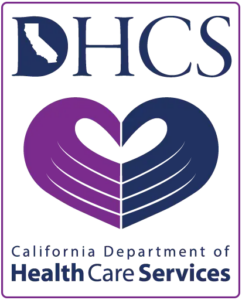
Stress and alcohol often go hand in hand, forming a cycle that can be as damaging as it is difficult to break. Research has shown that drinking can spike cortisol levels, the body’s primary stress hormone, leading to increased anxiety and further cravings for alcohol. Alarmingly, nearly 15 million adults in the U.S. struggle with alcohol use disorder (AUD), and many turn to drinking as a way to cope with stress.
At Surf City Detox in Huntington Beach, California, we understand the profound connection between stress and substance use. Through our specialized detox, residential treatment, and dual diagnosis care, we help individuals address not only their alcohol use but also the underlying stress and mental health issues driving it. Recovery starts with understanding the bigger picture, and we’re here to guide you toward healing.
What is Cortisol?
Cortisol is a steroid hormone produced by the adrenal glands, which are located on top of each kidney. It is released in response to stress and low blood glucose levels. Cortisol helps the body respond to stress by increasing blood sugar, enhancing brain function, and suppressing non-essential functions in a fight-or-flight situation. This hormone plays a crucial role in preparing the body to face challenges, whether they are physical threats or psychological stressors.
In normal amounts, cortisol is vital for health. However, when cortisol levels are consistently elevated due to chronic stress or excessive alcohol consumption, it can lead to a range of health issues, including anxiety, depression, weight gain, and high blood pressure. The modern lifestyle, characterized by high demands and constant connectivity, often keeps cortisol levels elevated, which can be detrimental to both mental and physical health.
The Role of Cortisol in the Body
Cortisol helps regulate a variety of essential functions, including:
- Stress Response: It helps the body manage stress by increasing energy availability, enhancing focus, and preparing the body for a “fight or flight” response.
- Metabolism Regulation: Cortisol helps control how the body uses carbohydrates, fats, and proteins, ensuring energy is available when needed.
- Inflammation Control: It has anti-inflammatory properties, helping to regulate the immune system and reduce inflammation.
- Blood Sugar Levels: Cortisol helps maintain steady blood sugar levels by stimulating glucose production and release.
- Blood Pressure Regulation: It supports cardiovascular function by helping maintain blood pressure within a healthy range.
- Sleep-Wake Cycle: Cortisol levels naturally fluctuate throughout the day, peaking in the morning to help you wake up and gradually decreasing to prepare the body for sleep.
Chronic high levels of cortisol can result in conditions like Cushing’s syndrome, characterized by rapid weight gain, skin changes, and muscle weakness. Conversely, low levels can lead to Addison’s disease, which can cause fatigue, weight loss, and low blood pressure. Understanding how lifestyle factors, such as alcohol consumption, can impact cortisol levels is crucial for maintaining health. Regular exercise, adequate sleep, and mindfulness practices can help regulate cortisol levels, promoting a healthier balance and reducing the risk of stress-related health issues.
How Alcohol Affects Cortisol Levels?
Alcohol consumption can significantly influence cortisol levels in the body. Research indicates that drinking alcohol, especially in large amounts, can lead to an increase in cortisol production. This response can vary depending on the amount of alcohol consumed and the individual’s overall health.
In the short term, alcohol consumption can lead to an immediate spike in cortisol levels. This increase is often due to the body’s stress response to alcohol, which it perceives as a toxin. As the body metabolizes alcohol, cortisol levels may rise, leading to feelings of stress or anxiety once the initial effects of alcohol wear off.
For many individuals, this can create a cycle where they consume alcohol to alleviate stress, only to find that it ultimately increases their cortisol levels, leading to more stress and anxiety. This cycle can be particularly concerning for those who use alcohol as a coping mechanism.
Additionally, the short-term effects of alcohol on cortisol can vary based on factors such as the type of alcohol consumed and the context in which it is consumed. For instance, social drinking may elicit a different hormonal response compared to solitary drinking. The social environment can lead to a temporary boost in mood, but as the effects of alcohol fade, the subsequent cortisol spike can overshadow any initial feelings of euphoria, leaving individuals feeling more anxious than before.
Chronic alcohol consumption can lead to consistently elevated cortisol levels. Over time, this can have detrimental effects on health, including increased risk of cardiovascular diseases, weakened immune function, and mental health disorders. Prolonged high cortisol levels can also lead to weight gain, particularly around the abdomen, and can contribute to insulin resistance.
Individuals who consume alcohol regularly may find it increasingly difficult to manage stress without turning to alcohol, creating a dependency that can further exacerbate cortisol-related health issues. This dependency can manifest in various ways, including withdrawal symptoms when not drinking, which can further elevate stress and anxiety levels. Additionally, the relationship between alcohol and cortisol can create a vicious cycle that is hard to break, as the body becomes conditioned to rely on alcohol for temporary relief from stress, while simultaneously increasing the physiological stress response in the long run.

The Link Between Alcohol and Stress
Alcohol is often used as a social lubricant or a means to unwind after a long day. While it may provide temporary relief from stress, the long-term effects on cortisol levels can be counterproductive. Understanding this relationship is crucial for making informed choices about alcohol consumption.
Alcohol as a Coping Mechanism
Many people turn to alcohol to cope with stress or anxiety. Initially, it may seem effective, as alcohol can produce feelings of relaxation and euphoria. However, this effect is short-lived, and as cortisol levels rise, individuals may experience heightened anxiety or stress once the alcohol’s effects wear off.
This can lead to a dangerous cycle where individuals feel compelled to drink more to manage their stress, ultimately leading to increased cortisol levels and worsening mental health. Recognizing this pattern is essential for anyone who relies on alcohol to cope with life’s challenges.
Individual Variability in Response to Alcohol
It is important to note that individuals may respond differently to alcohol regarding cortisol levels. Factors such as genetics, overall health, and drinking habits can influence how alcohol affects cortisol production.
Research suggests that genetic predispositions can play a role in how individuals metabolize alcohol and respond to its effects. Some people may experience a more significant increase in cortisol levels after consuming alcohol, while others may not be as affected. Studies also suggest that women may experience a more pronounced increase in cortisol levels in response to alcohol compared to men. This difference can be attributed to various factors, including hormonal fluctuations and body composition. Understanding these genetic factors can help individuals make more informed choices about their alcohol consumption and its potential impact on their health.
Individuals with pre-existing health conditions, such as anxiety disorders, depression, or cardiovascular issues, may be more sensitive to the effects of alcohol on cortisol levels. For these individuals, even moderate alcohol consumption can lead to significant increases in cortisol and exacerbate their existing health problems. Consulting with a healthcare professional can provide personalized guidance on alcohol consumption and its potential effects on cortisol levels, especially for those with underlying health conditions.
How to Stop Stress Drinking?
Stress drinking can feel like a quick solution to cope with anxiety and tension, but it often creates a vicious cycle of temporary relief followed by deeper physical and emotional struggles. To stop stress drinking, it’s important to replace alcohol with healthier ways to manage stress while addressing the root causes of the behavior. Here are some steps to consider:
Practical Tips to Manage Stress Without Alcohol
- Practice Mindfulness: Techniques like meditation, deep breathing, and grounding exercises can help you stay present and reduce feelings of overwhelm.
- Engage in Physical Activity: Regular exercise, whether it’s yoga, running, swimming, or even walking, helps relieve tension and releases endorphins, improving your mood naturally.
- Build a Support System: Talking to close friends, family members, or joining a support group can provide encouragement and accountability as you work toward reducing or eliminating drinking.
- Therapy and Counseling: Professional counseling, such as cognitive-behavioral therapy (CBT), can help you explore and change the thought patterns contributing to stress drinking.
- Adopt Healthy Habits: Focus on maintaining a balanced diet, staying hydrated, and getting quality sleep. These foundational practices can improve your resilience to stress.
For many, stress drinking becomes ingrained and challenging to stop without additional help, especially if it’s tied to underlying mental health conditions or significant life pressures.
Treatment Options at Surf City Detox
For individuals who struggle to stop stress drinking on their own, Surf City Detox in Huntington Beach, California, provides evidence-based, compassionate care. Our specialized programs create a safe and supportive environment for recovery, ensuring you receive the tools and support needed to break free from alcohol dependency.
The first step in recovery is managing withdrawal symptoms safely. At Surf City Detox, we offer a medically supervised detox program where individuals can receive round-the-clock care to stabilize their bodies and minds.
After detox, our residential treatment program provides a structured and immersive space for healing. With personalized treatment plans, clients focus on addressing the root causes of their drinking, whether it’s stress, anxiety, or unresolved trauma. Our team of experienced professionals incorporates therapy, educational sessions, and holistic modalities to promote overall well-being.
Many individuals who drink due to stress have co-occurring mental health issues, such as anxiety or depression. Our dual diagnosis program addresses both alcohol use disorder and underlying mental health conditions, recognizing that sustainable recovery requires treating both simultaneously.
At Surf City Detox, we believe that recovery involves looking at the whole person. By helping clients develop new coping strategies, build resilience, and address the underlying sources contributing to their drinking, we aim to empower lasting transformation. Whether you or a loved one are struggling with stress drinking, our team is here to guide you toward a healthier and more fulfilling life, free from the grip of alcohol.

Take the First Step Towards Balanced Health with Surf City Detox
If you’re ready to address the impact of alcohol on your cortisol levels and overall health, Surf City Detox is here to guide you on your journey to recovery. Our expert care in the heart of Huntington Beach offers a supportive and vibrant environment to help you heal and grow. Whether you’re struggling with addiction or co-occurring disorders, our compassionate approach is tailored to your unique needs. Don’t let stress and alcohol dictate your life. Contact us today to reclaim your health and embark on a path to lasting wellness.
Dr. Eric Chaghouri is a 2007 graduate from the University of California, Los Angeles, where he earned his B. A. in Biology with Summa Cum Laude honors. While at UCLA, he helped the men’s varsity volleyball team earn a National Championship in 2006. He was named the UCLA Scholar-Athlete of the Year in 2007.
He earned his medical degree from the Keck School of Medicine in 2011. He completed his internship training in 2008 at Cedars-Sinai Medical Center and the remaining three years of residency in general adult psychiatry at the Los Angeles County and University of Southern California Medical Center. He served as the Chief Resident in psychiatric emergency services during his fourth year of residency. He also served as Resident Clinical Instructor and Volunteer Faculty in the Department of Psychiatry at the Keck School of Medicine.
After completing residency, Dr. Chaghouri accepted a fellowship position in forensic psychiatry at the prestigious USC Institute of Psychiatry and Law. His scholarly activities included publishing in Legal Digest and presenting research findings at the Keck School of Medicine annual conference.
Since completing his forensic psychiatry fellowship, he has established a successful and thriving practice in Southern California, focusing on treatment of co-occurring psychiatric and addictive disorders. He has developed a strong clinical team of practitioners who share similar goals and philosophies regarding psychiatric treatment, including providing cutting-edge interventional treatments for psychiatric conditions. He works in an array of capacities with attorneys, courts, and other parties in actual or potential litigation. He also has extensive experience consulting and providing opinions on psychiatric issues for major television networks. Dr. Chaghouri’s interests include addiction medicine, substance use disorders, forensic psychiatry, medical ethics, psychological autopsy, gender wellness, and evidence-based treatment of psychiatric conditions.



